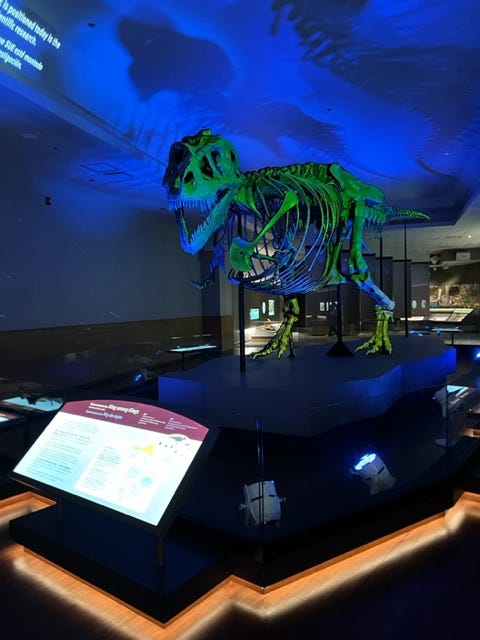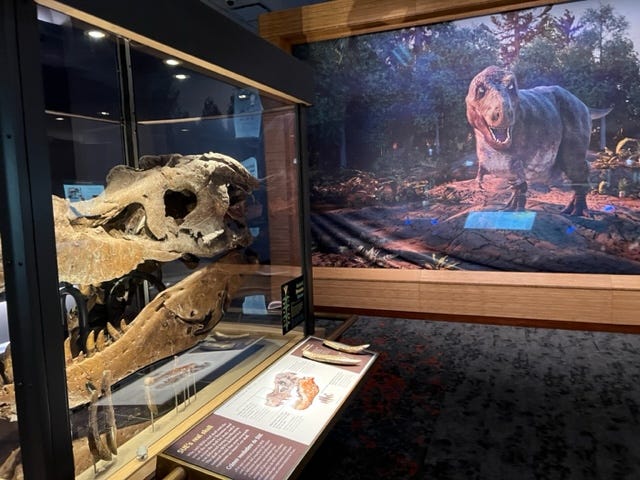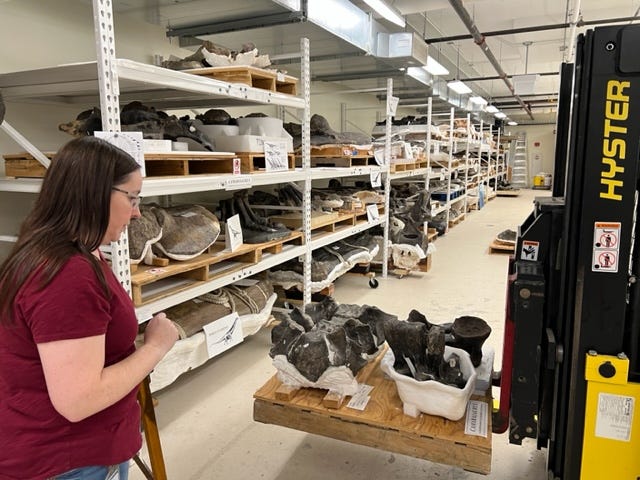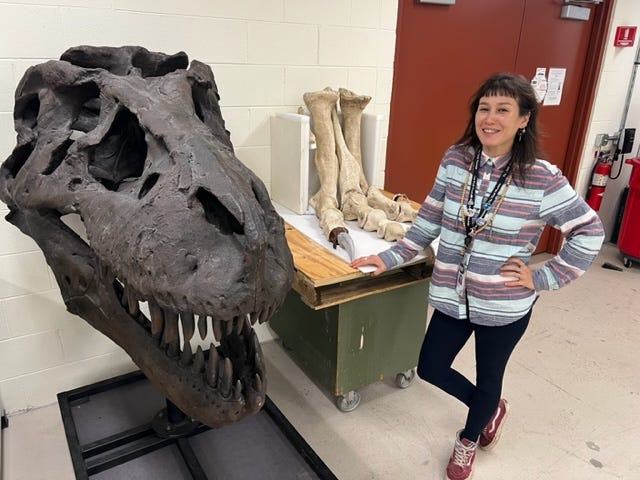
Jingmai O'Connor is close personal friends with Sue the T. rex and studies prehistoric birds and reptiles for a living.
As Associate Curator of Fossil Reptiles at The Field Museum, she's a scientist, a paleontologist and one of the few women in her industry.
"Well, normally you are a child who loved dinosaurs and nothing else your entire life, and you go to school for a million years it seems like and then if you're lucky, you land a dream job like this. In my case, I started a bit late. My mom got her Ph.D. in geology when I was 10, so I became interested in geology but didn't know what facet clicked with me. I took a paleontology class in college and I fell in love. I kind of fell into the dinosaur thing," she smiled.
O'Connor has been working behind the scenes at the Field Museum for two years but spent more than 10 years in Beijing at the Institute of Vertebrate Paleontology and Paleoanthropology.
She travels the world on digs and doing research about what lived and died millions of years ago.
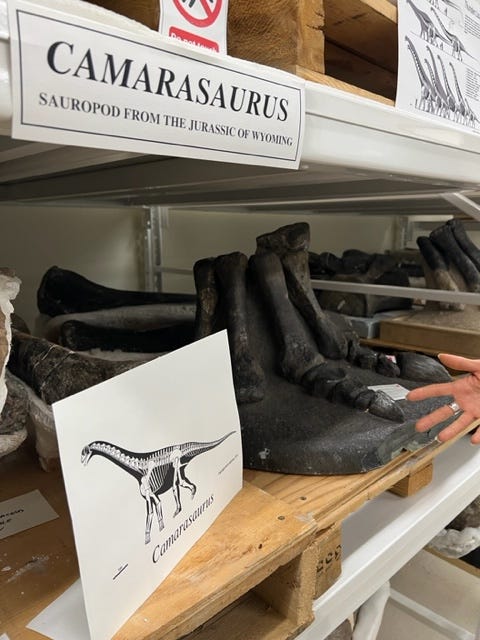
"We do most of our field work in the summer when the weather is on our side. This summer, we spent two weeks in the Hell Creek. I also did some work in Dinosaur Provincial Park up in Canada, which is a UNESCO World Heritage site. I highly recommend going because I've never been any place in my life like it. There are fossils everywhere, everywhere. It was just amazing," she recalled.
Speaking of fossils, she's even named 40 new species herself.
O'Connor spends her days between her four-room lab and the collection research center located deep in the bowels of the museum, where thousands of fossils are kept and preserved.
"This is the dinosaur and oversized collections room in the collections resource center. This is where we keep all of our fossils. Things are organized by size. On the shelves, there are big things. Some of these bones weigh thousands of pounds. There are cabinets on tracks as well," she said.
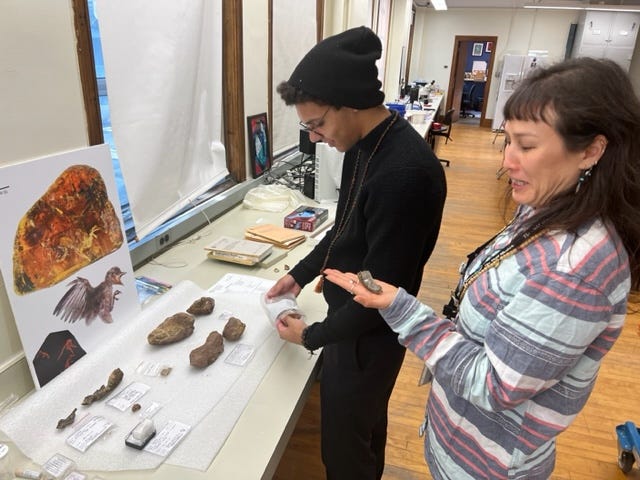
Although prehistoric birds are her specialty, she wrote a paper on the Field's most famous resident.
"I recently published my first paper on Sue the T. rex because why not? I never thought I would work on Tyrannosaurus rex, but when you come to the Field Museum, you have the best specimen in the world -- so why not utilize it," she said.
Crews are constantly moving bones and fossils of all sizes. Head of Collection Research Bill Simpson maneuvers the forklift to move some of the museum's largest pieces of history.
"You saw in the news that we took Sue's arm recently, so we put the cast back on while the actual bone was missing. Now Bill is returning it," she said.
"This is the cast of Sue's left scapula corticoid, its shoulder blade. There's an entire research cast of Sue which is housed here for research purposes. When we took the real scapula off for CT scanning, we put the cast on temporarily. The real one is back on the mount so the cast is going back into collections. She's still missing the real arm which still has more work to be done on it," said Simpson.
Another important part of her job is talking to the next generation about her job, about science and, of course, dinosaurs.
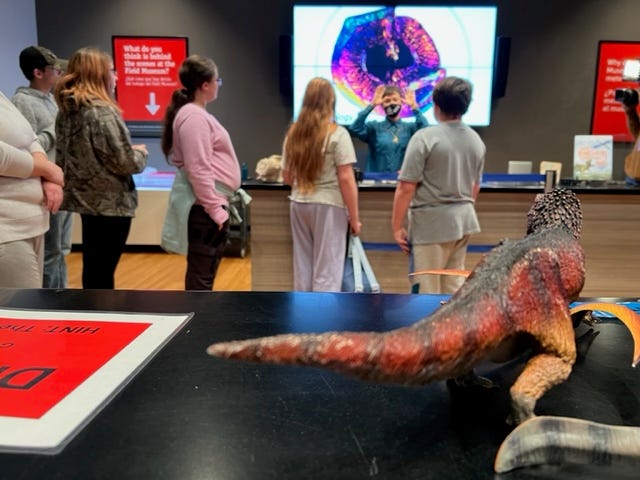
She fields questions from inquisitive young minds and shows off her new children's book about — what else? Birds and dinosaurs.
"My new book is called 'When Dinosaurs Conquered the Skies.' It's great to be able to share everything I've learned about paleontology. It's the story of how birds are really unique animals, how they evolved and also, at the very end, we talk about the six mass extinctions and how birds are being affected by human actions."
O'Connor says the book is as much about the future as it is the past and hopes kids and parents alike learn about climate change, its profound effect on birds and how humans can do our part to save the planet.
"Really, the environment is really in crisis. Everyone's priority should be sustainability. That's what the last two pages are about."
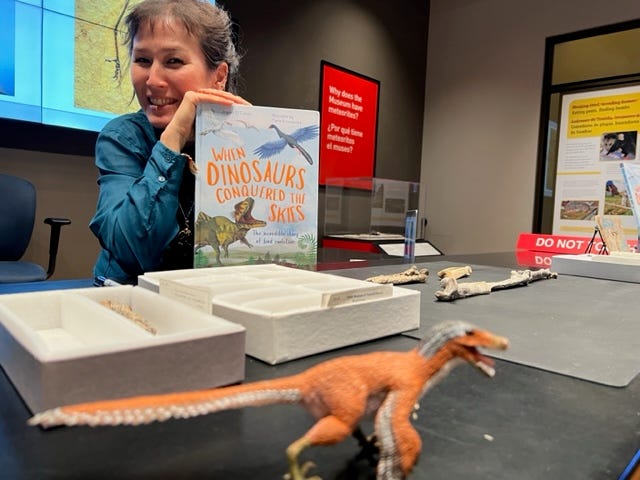
Paleontology is still a male dominated world.
Only 19.4% of paleontologists are women. More than 80% are men. Although generations of researchers have chipped away at the male-dominated culture, a gap remains. O'Connor is certainly aware of the gender disparity, and while she doesn't see herself as a pioneer, O'Connor said she takes pride in the path that has been paved before her and looks forward to continuing to champion the profession and the journey for women.
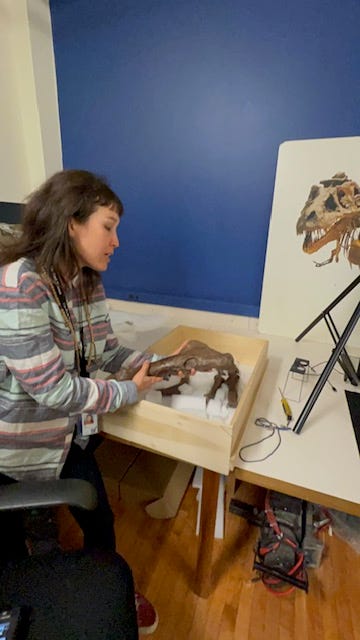
"There are a lot of very famous female scientists who've come before me. I wouldn't even put myself in their ranks yet. I still feel young and not part of this older, 'made-it' generation yet. There's all this push to diversify science that women can do because I followed in my mom's footsteps. Growing up, I never once thought women can't do this, I can't do this or the face of science is supposed to be a white man. It was never something that concerned me. I just see myself as a person. But I realize now how important it is to provide role models. I'm super happy to do that. If I've inspired people, great, I'm super flattered but I'm just doing me."
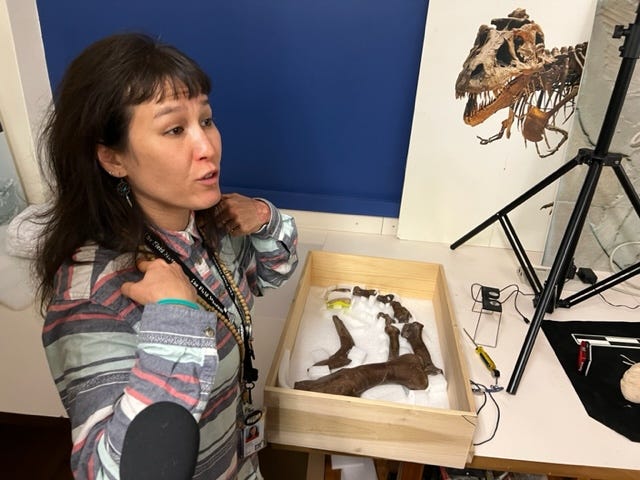
O'Connor even has her own Wikipedia page, listed as one of 137 women in her field, her bio photo shows off her tattoo sleeve and her bob haircut. She's known as the punk rock paleontologist who makes science fun and flying dinosaurs and ancient birds cool. She says making discoveries is everything.
"It's an incredible feeling. I can't even explain it. You get this thrill through your body. It's actually addictive. You want to find more. You have to peel yourself out of the field and force yourself to go back. I encourage people to look up online to find fossils. You can find so much information. You can take your kids there and find something and get that thrill of discovery themselves, to find something that no other human has seen but you. Paleontology is a gateway science. It's one of the more fulfilling career paths you can choose, in my opinion."
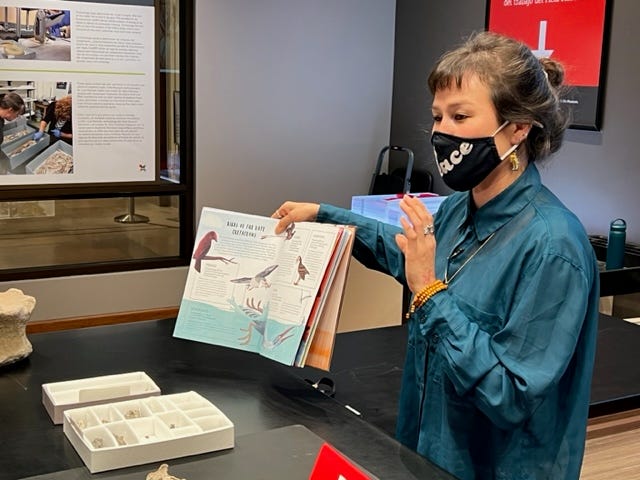
O'Connor's research has been published in Nature, Science, the Proceedings of the National Academy of Sciences and Current Biology, and in 2019, she was awarded the Charles Schuchert Award for excellence in Paleontology under the age of 40 by the Paleontological Society.
Her new children's book, "When Dinosaurs Conquered the Skies," is available online and at most book stores.
